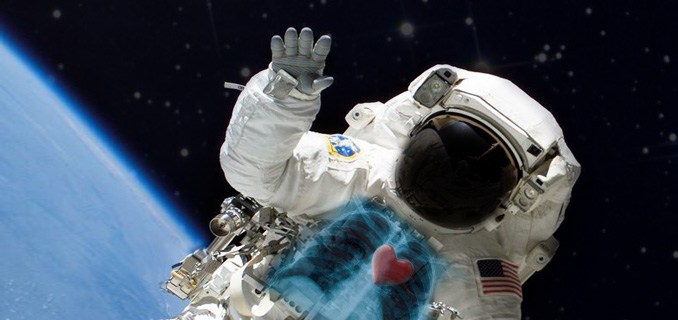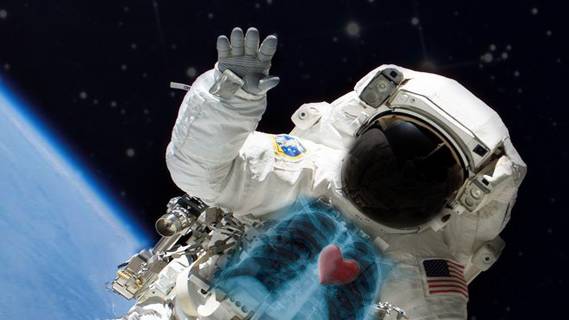Study finds astronauts’ hearts change shape in space

Not only are astronauts in danger from cosmic radiation, space junk, catastrophic equipment failure, and their fingernails falling off, they’ve also now got to risk heart attacks for daring to explore that final frontier.
Studies are finding that human hearts change shape and become spherical in space, and microgravity makes astronauts more prone to heart attacks.
---
Hearts Become Spherical When Astronauts Go To Space: Study
By Lawrence LeBlond | RedOrbit
[...]Previous studies have shown that astronauts are exposed to a range of health issues when taking prolonged trips into space, including losses in bone density and muscle mass and vision anomalies. The new heart health findings, based on a study of 12 astronauts, is to be presented at the upcoming American College of Cardiology’s 63rd Annual Scientific Session.
The new findings bolsters the evidence that even longer periods in space, as would occur on a mission to Mars, is associated with increased dangers on human health. The results of the astronaut study will help scientists better understand how a spaceflight lasting 18 months or longer could affect heart health.
“The heart doesn’t work as hard in space, which can cause a loss of muscle mass,” senior study author James Thomas, MD, Moore Chair of Cardiovascular Imaging and Lead Scientist for Ultrasound at NASA, said in a statement. “That can have serious consequences after the return to Earth, so we’re looking into whether there are measures that can be taken to prevent or counteract that loss.”
In order to keep the heart healthy in space, astronauts will need to know the amount and type of exercise they need to perform to guarantee their safety on prolonged spaceflights. Thomas noted that exercise regimens developed for astronauts could also help people on Earth who have physical limitations also maintain good heart health.
[...]
Thomas maintained that the spherical form is only temporary and returns to a normal shape shortly after astronauts return to Earth. But while in space, a spherical shape may mean the heart is performing less efficiently, although long-term health effects are currently unknown.
However, it has been previously found that some astronauts do suffer a variety of cardiac effects upon returning to Earth. Orthostatic hypotension, where the astronaut becomes lightheaded or passes out, occurs when the body experiences a sudden drop in blood pressure when an astronaut tries to stand up. Arrhythmias can also occur during space travel, and there is concern that radiation exposure may accelerate atherosclerosis.
Read the full article at: redorbit.com






















